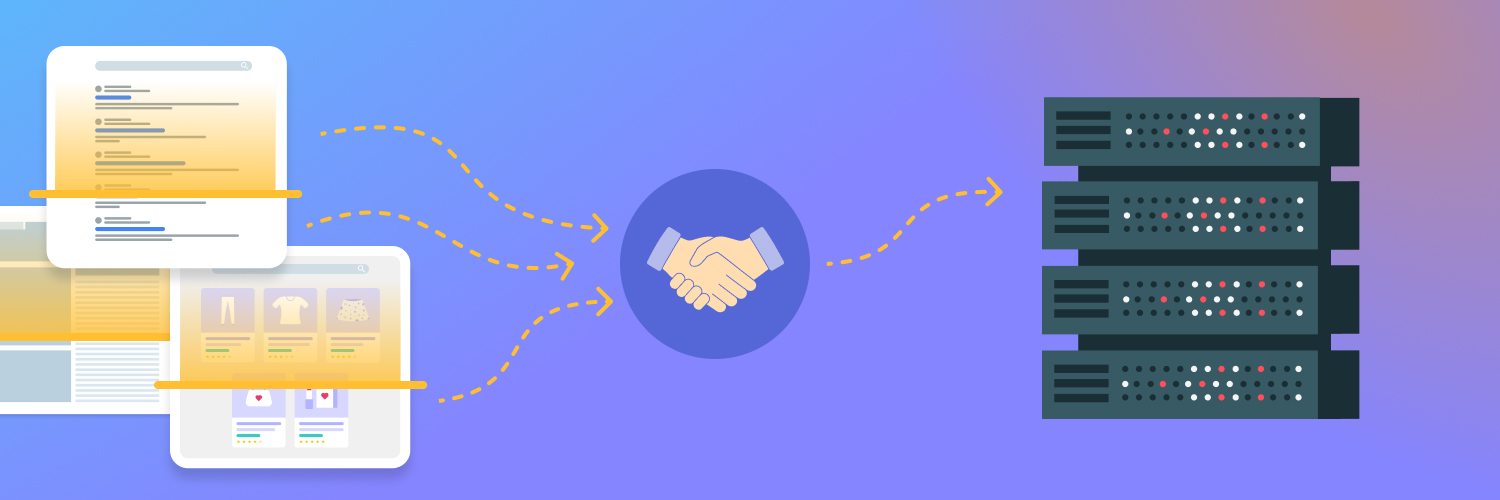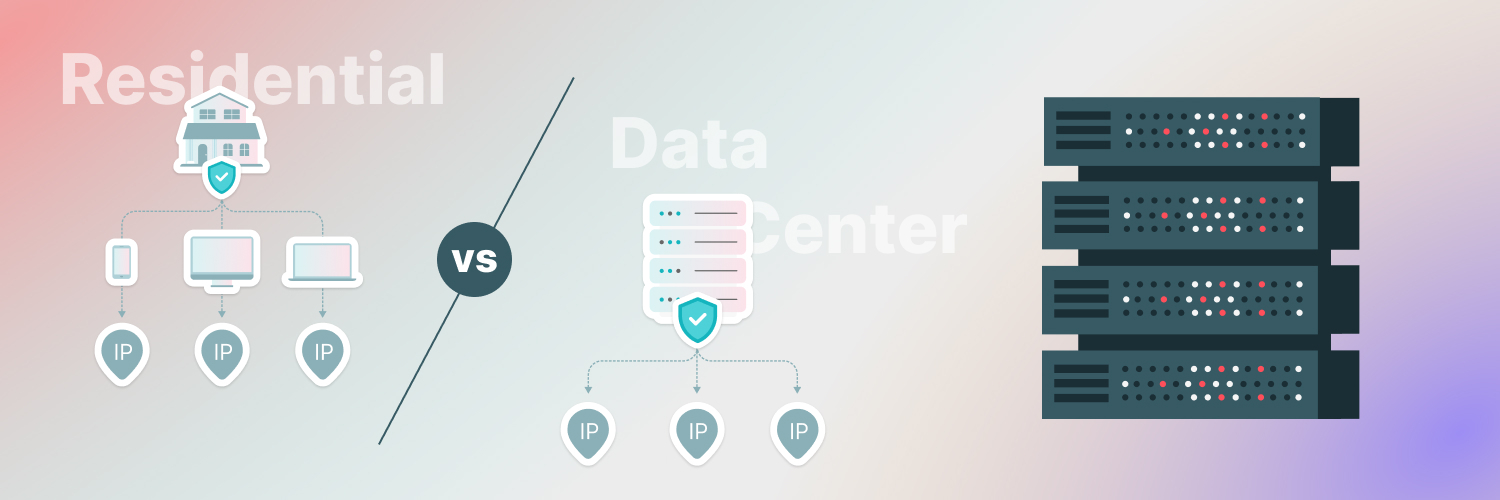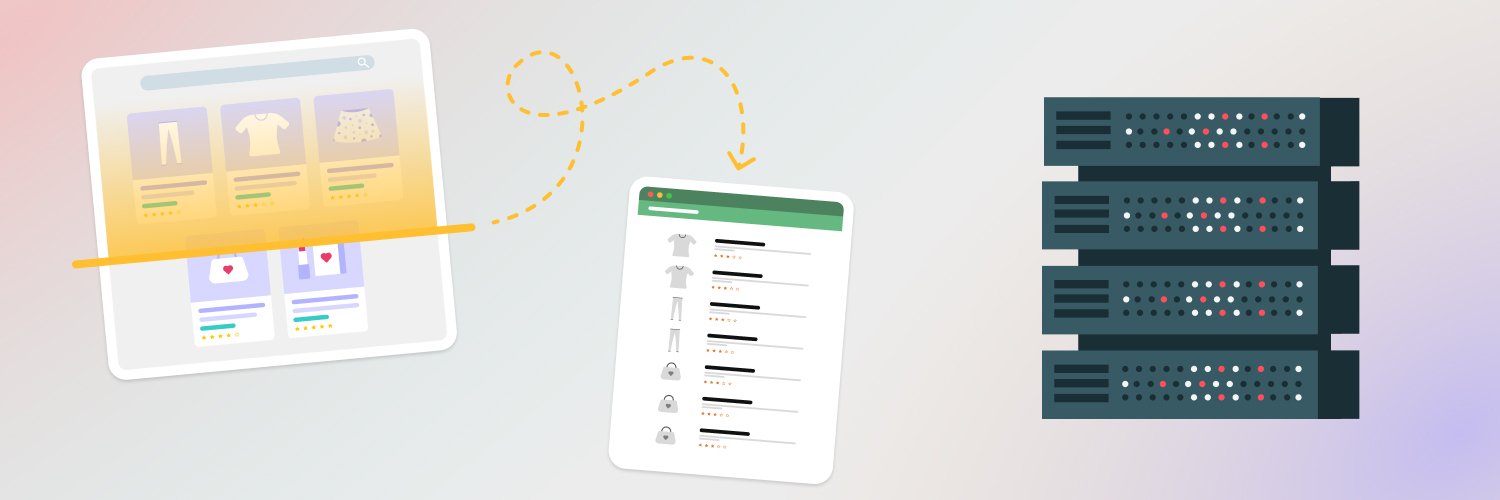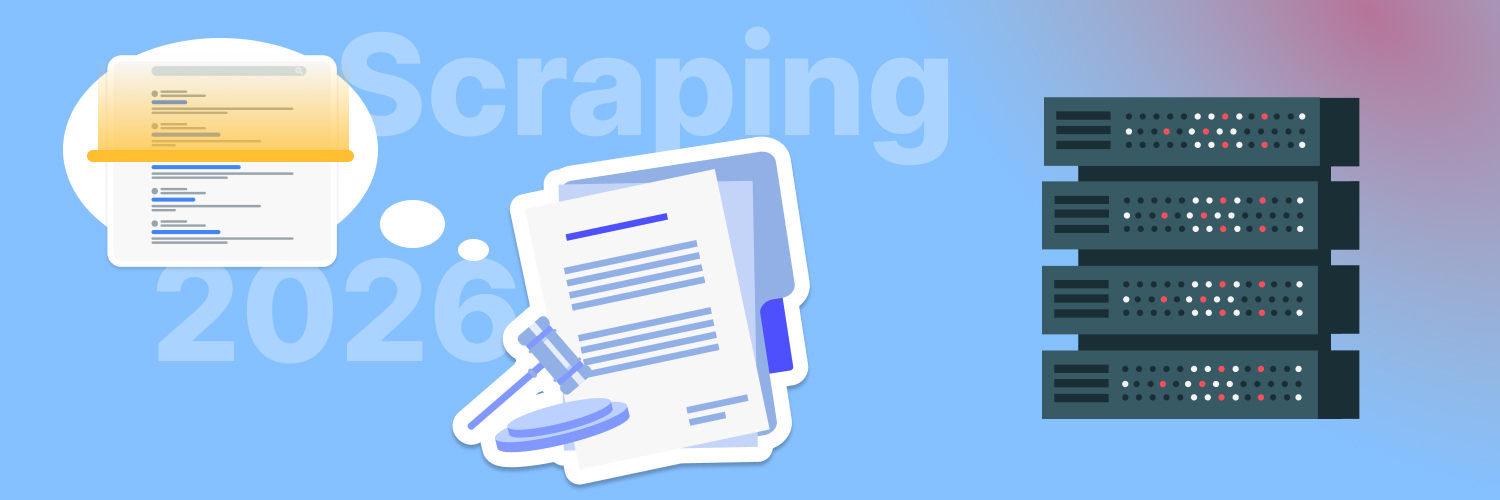Web Scraping Showdown: PHP Vs. Java?
In the ever-evolving landscape of data extraction, web scraping has become an indispensable tool for developers and businesses alike. It doesn’t matter if you’re gathering data for market research, monitoring competitors, or aggregating content. Choosing the correct programming language can significantly impact your project’s success. In this blog post, we’ll dive deep into a showdown between two popular languages: PHP vs. Java.
PHP, known for its simplicity and effectiveness in web development, often appeals to those looking to quickly set up scraping solutions. On the other hand, Java boasts robust performance, scalability, and a wealth of libraries, making it a favorite for more complex scraping tasks.
Try Our Web Scraping API
The easiest way to get your scraping project started!

Which one truly reigns supreme in the world of web scraping? Join us as we compare these two languages across critical dimensions such as ease of use, library support, performance, and real-world applications. Whether you’re a seasoned developer or just starting your web scraping journey, this showdown will help you decide which language best fits your needs.
What Is PHP?

PHP stands for “Hypertext Preprocessor.” It is a widely used, open-source server-side scripting language designed primarily for web development. It allows developers to create dynamic and interactive websites by embedding code within HTML.
Here are some essential features and aspects of PHP:
- Server-Side Language: PHP runs on the server, generating HTML that is sent to the client’s browser. This means users don’t see the PHP code itself, only the resulting web page.
- Ease of Use: PHP is known for its straightforward syntax, making it accessible for beginners while still being powerful enough for advanced users.
- Database Integration: PHP works seamlessly with various databases, particularly MySQL, making it a popular choice for data-driven applications.
- Cross-Platform: PHP is compatible with various operating systems, including Windows, macOS, and Linux, which allows for flexibility in deployment.
- Frameworks and Libraries: There are many frameworks (like Laravel and Symfony) and libraries available that streamline PHP development, enhance security, and promote best practices.
- Community Support: As one of the most popular programming languages for web development, PHP has a large and active community, offering extensive documentation and support.
- Content Management Systems: PHP powers many popular content management systems (CMS) like WordPress, Joomla, and Drupal, making it a fundamental technology in the web landscape.
What Is Java?

Java is a high-level, object-oriented programming language that is designed to be platform-independent, thanks to its “write once, run anywhere” (WORA) capability. Developed by Sun Microsystems (now part of Oracle Corporation) in the mid-1990s, Java has become one of the most popular programming languages in the world.
Here are some must-know features and aspects of Java:
- Platform Independence: Java programs are assembled into bytecode, which can run on any system that has a Java Virtual Machine (JVM). This allows developers to create applications that can operate across various platforms without modification.
- Object-Oriented: Java follows the principles of object-oriented programming (OOP), such as encapsulation, inheritance, and polymorphism. This promotes code reusability and modular design.
- Robustness: Java emphasizes reliability and security. It includes robust memory management features, exception handling, and type checking at both compile-time and runtime, reducing the chances of crashes and bugs.
- Rich Standard Library: Java comes with a comprehensive set of built-in libraries and APIs that facilitate everything from networking and file I/O to data structures and graphical user interfaces.
- Multithreading Support: Java features built-in multithreading support. It allows developers to write programs that can simultaneously perform multiple tasks, improving performance and responsiveness.
- Wide Application Range: Java is used in various domains, including web applications (with frameworks like Spring and JavaServer Faces), mobile applications (especially Android), enterprise software, and large-scale systems.
- Community and Ecosystem: Java has a large, active community and a wealth of resources, including frameworks, tools, and documentation. This ecosystem supports developers at all levels, from beginners to seasoned professionals.
PHP Vs. Java: Similarities

When it comes to web scraping, both PHP and Java share several similarities that make them viable options for developers looking to extract data from websites. If you’re curious about the Java vs. PHP benchmark or Java vs PHP for backend tasks, it helps to start by understanding the similarities between the two languages.
Here are some similarities between the two languages in this context:
- HTTP Request Handling: Both PHP and Java provide libraries and tools to handle HTTP requests. This allows developers to easily fetch web pages for scraping. In PHP, libraries like cURL are commonly used, while Java developers often use libraries like Apache HttpClient.
- HTML Parsing: Each language has robust libraries for parsing HTML. In PHP, tools like DOMDocument and SimpleXML are popular, while Java developers can leverage libraries such as Jsoup. These libraries make it straightforward to navigate and extract specific elements from the HTML structure.
- Regular Expressions: Both PHP and Java support regular expressions, which can be helpful in extracting specific patterns of data from web pages. This feature allows developers to perform complex string manipulations and data extractions.
- Support for DOM Manipulation: Both languages provide ways to manipulate the Document Object Model (DOM). This is essential for accessing and modifying HTML elements, which is often necessary for web scraping tasks.
- Asynchronous Processing: While Java has more advanced built-in support for asynchronous programming, both languages can handle non-blocking I/O to some extent. This is useful for scraping multiple pages concurrently, improving efficiency and speed.
- Extensive Libraries and Frameworks: Both PHP and Java have a variety of libraries and frameworks that simplify the web scraping process. PHP has tools like Goutte and Symfony Components, while Java has a rich ecosystem with libraries designed for web scraping, such as Selenium for dynamic content scraping.
- Data Storage Options: Both languages offer a wide range of options for storing the scraped data, whether it be in databases (like MySQL or MongoDB) or in file formats like JSON or CSV. This flexibility allows developers to choose the best way to manage and utilize the data they collect.
- Community Support: Both languages have large and active communities that provide resources, tutorials, and forums for web scraping. This community support can be invaluable for troubleshooting and learning best practices.
Java vs. PHP: Differences

Despite their similarities, PHP and Java also have distinct differences that can influence a developer’s choice depending on the project’s requirements. Here are some noteworthy ones to keep in mind:
Execution Environment
PHP typically runs on a web server and is designed for server-side scripting. It’s ideal for quick web scraping tasks integrated into web applications.
Java is compiled to bytecode and runs on the Java Virtual Machine (JVM), making it more suited for standalone applications and large-scale scraping projects.
Syntax and Learning Curve
PHP generally has a simpler and more concise syntax, which can be easier for beginners to grasp, especially for tasks focused on web development.
Java has a more complex syntax with strict object-oriented principles. This can present a steeper learning curve, particularly for those new to programming.
Library Support
PHP offers libraries like Goutte and cURL that are straightforward and quick to use for scraping. However, it may lack some advanced capabilities compared to Java libraries.
Java features a rich ecosystem of libraries, such as Jsoup and Selenium, providing extensive functionality, especially for handling complex web scraping tasks and dynamic content.
Performance and Scalability
PHP is suitable for many scraping tasks, but it may not perform as well for very large-scale operations due to its nature as a scripting language.
Java typically offers better performance and scalability, making it a strong choice for larger applications or when scraping a high volume of data.
Concurrency and Multithreading
PHP is generally single-threaded, which can limit performance when scraping multiple pages concurrently. Asynchronous processing is possible but can be more complex.
Java provides robust support for multithreading, enabling developers to efficiently handle multiple requests at once, significantly speeding up the scraping process.
Error Handling
PHP utilizes a simpler error handling mechanism, which may not provide the same level of granularity or control as Java’s exception handling.
Java offers a more sophisticated error-handling system through try-catch blocks, allowing for better management of exceptions during scraping operations.
Integration with Other Technologies
PHP is often integrated seamlessly with web technologies and databases, making it ideal for projects that need to scrape and display data on web pages quickly.
Java is also capable of integration. However, it is commonly used in enterprise environments and can work well with a wide array of systems and services, often making it a better choice for more complex data workflows.
Development Speed
PHP generally allows for faster development and prototyping, especially for smaller tasks, due to its straightforward nature.
Java is potentially more time-consuming to set up, but it can lead to more robust and maintainable applications in the long run.
Which One Wins?

Software development programming on computer screen for modish application and program coding
There is no one clear winner in the Java vs. PHP debate. Choosing between Java and PHP for web scraping depends on several factors, including project requirements, developer experience, and the specific context in which you’ll be working.
In the following sections, you’ll find a breakdown of scenarios where each language might be considered “better.”
When Java Might Be Better
Here are some scenarios in which you may prefer Java for web scraping:
- Performance and Scalability: If you’re scraping large volumes of data or require high performance, Java is generally more efficient. Its multithreading capabilities allow you to scrape multiple pages concurrently, significantly speeding up the process.
- Complexity and Features: Java offers a rich ecosystem of libraries (like Jsoup and Selenium) that can handle complex scraping tasks, including dynamic content and JavaScript-heavy sites. If your scraping project requires advanced functionality, Java might be the better choice.
- Enterprise Integration: If you’re developing a solution that needs to integrate with existing enterprise systems or requires a robust architecture, Java’s object-oriented design and strong typing can facilitate this.
- Long-Term Maintainability: Java’s strict structure and comprehensive error handling make it easier to maintain larger projects over time, especially in a team environment.
When PHP Might Be Better
In these cases, it might be better to use PHP:
- Simplicity and Speed of Development: For smaller projects or quick prototypes, PHP’s straightforward syntax and ease of use can lead to faster development times. It’s particularly suitable for developers familiar with web technologies.
- Web-Focused Applications: If your scraping task is closely integrated with web development (like fetching and displaying data on a website), PHP can be more convenient due to its native capabilities for server-side scripting.
- Cost-Effective for Small Tasks: If you only need to perform light scraping tasks without the need for extensive libraries or performance optimizations, PHP may be more cost-effective in terms of both time and resources.
- Existing PHP Infrastructure: If you’re already working within a PHP ecosystem (like WordPress or a custom PHP application), leveraging PHP for scraping can simplify the process and reduce the need for additional infrastructure.
Try Our Web Scraping API
The easiest way to get your scraping project started!

Get More Web Scraping Support from Rayobyte

Software development programming on computer screen for modish application and program coding
In the showdown between PHP and Java for web scraping, it’s clear that both languages bring unique strengths to the table.
PHP shines with its simplicity and speed, making it an excellent choice for quick tasks or projects tightly integrated with web applications. Conversely, Java offers robust performance and scalability, making it the go-to for more complex scraping needs, particularly when handling large volumes of data or dynamic content.
Ultimately, the best choice depends on your specific requirements, including the scale of your project and your familiarity with the languages. Whether you choose PHP or Java, the right tools can make all the difference in your web scraping endeavors.
For those looking to take their web scraping efforts to the next level, consider signing up for a free trial of Rayobyte. With its comprehensive solutions and expert support, Rayobyte can help you navigate the complexities of web scraping, ensuring you get the data you need efficiently and effectively.
Don’t miss out on the opportunity to enhance your scraping capabilities. Try Rayobyte today!
The information contained within this article, including information posted by official staff, guest-submitted material, message board postings, or other third-party material is presented solely for the purposes of education and furtherance of the knowledge of the reader. All trademarks used in this publication are hereby acknowledged as the property of their respective owners.



